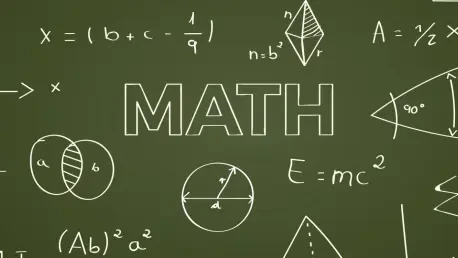In recent years, the issue of math anxiety has gained attention within educational circles, highlighting a challenge that many aspiring teachers face. Math anxiety is not simply a fleeting discomfort but a significant hurdle that can affect teaching efficacy and the quality of education that students receive. For those studying to become educators, particularly in subjects like mathematics where this anxiety is prevalent, overcoming such a barrier is essential to their future success. Among those taking up this challenge is Summer Funk, a senior at Kennesaw State University (KSU), whose research is shining a critical light on this issue. Her journey from encountering difficulties in algebra despite early academic success underscores a broader narrative: understanding math is within reach for many, provided they overcome the stigma of math anxiety.
Funk’s research at KSU is pioneering in its aim to understand how deeply math anxiety is entrenched among preservice teachers and the strategies they employ to cope. With the mentorship of Professor Paula Guerra, Funk is delving into this issue through the Summer Undergraduate Research Program (SURP), collecting data from future teachers at KSU and beyond. Initial findings suggest that math anxiety is a common experience, often shared among student teachers irrespective of their math background. Funk’s methodology, which includes surveys and interviews, seeks to identify the tangible impacts of math anxiety and explore possible solutions. By engaging with a broad spectrum of preservice teachers, she aims to develop insights that could shape future educational practices. Her work emphasizes the potential for changing educational curricula to include training that specifically addresses math anxiety, aiming to equip future teachers with strategies that not only help them but also positively impact their future students.
The Role of Research in Understanding Math Anxiety
The importance of understanding math anxiety cannot be overstated given the essential role teachers play in fostering a positive learning environment. Summer Funk’s research highlights the necessity of breaking down barriers associated with math anxiety, which remains a pervasive obstacle in the educational journey of many preservice teachers. Under the guidance of Professor Guerra, Funk’s research utilizes qualitative methods, gathering not just statistical evidence but also anecdotal insights from interviews. This dual approach allows for a nuanced understanding of how math anxiety manifests and impacts future educators. Through this research, it becomes evident that addressing math anxiety is not solely about altering perceptions but also involves fostering a supportive educational framework.
Funk’s engagement with her peers in surveys reveals a shared sense of apprehension toward math, underscoring a need for institutional strategies to mitigate such challenges. This collective experience among aspiring teachers points to a wider systemic issue within teacher training programs, reinforcing the view that educational institutions must prioritize the mental well-being of their educators. By drawing on these insights, Funk hopes to initiate a dialogue that challenges traditional assumptions and contributes to a broader recognition of the issue. Her work suggests that by addressing math anxiety at the educational level, alongside fostering strong support systems, institutions can transform this barrier into an opportunity for growth. The potential positive outcomes extend beyond individual educator success to enhancing the overall quality of math education delivered to students.
Educational Impacts and Future Implications
Recognizing and addressing math anxiety among preservice teachers can lead to significant improvements in educational practices. Funk’s research at KSU is laying the groundwork for potential curriculum changes that focus on better preparing educators to confront their anxieties. Such changes could lead to the development of teaching strategies that make math more accessible and less intimidating, both for teachers and their students. By incorporating these strategies into teacher education programs, educational institutions can help to build a cadre of educators who are not only mathematically competent but also confident in their ability to teach. This initiative could help students receive instruction from teachers who understand and have overcome their anxieties, making math education a more enriching and less daunting experience.
The implications of Funk’s research extend beyond the confines of KSU as it sets a precedent for educational best practices on a wider scale. By promoting the importance of addressing math anxiety, Funk’s study could influence other universities to adopt similar research-driven approaches. The potential reforms not only aim to benefit preservice teachers but also enhance the overall culture of math education, challenging the long-held belief that only certain individuals are inherently good at math. Ultimately, fostering an educational environment where math anxiety is recognized and addressed can contribute to improved student outcomes and a more equitable educational landscape. Through continued research and the implementation of such insights, the education system can evolve to support all learners in reaching their full potential.
Overcoming the Challenge
In recent years, the topic of math anxiety has attracted significant attention in educational discussions, revealing a challenge for many aspiring teachers. Math anxiety is more than a simple unease; it presents a major obstacle that can impair teaching effectiveness and the quality of education students receive. For those pursuing careers in education, particularly in math, overcoming this anxiety is crucial for their success. Summer Funk, a senior at Kennesaw State University (KSU), is at the forefront of addressing this issue through her research. Despite early academic successes, Funk faced struggles in algebra, which highlights a broader theme: that overcoming math anxiety can make math comprehension possible for many students.
Her work at KSU aims to deeply understand math anxiety among preservice teachers and the strategies they use to cope. Guided by Professor Paula Guerra, Funk’s research through the Summer Undergraduate Research Program involves gathering data from future teachers. Initial results indicate that math anxiety is widespread among student teachers, regardless of their math expertise. Through surveys and interviews, Funk seeks to identify the effects of math anxiety and explore solutions. Her objective is to inspire changes in educational curricula to incorporate training that addresses math anxiety, ultimately benefiting future teachers and their students.









